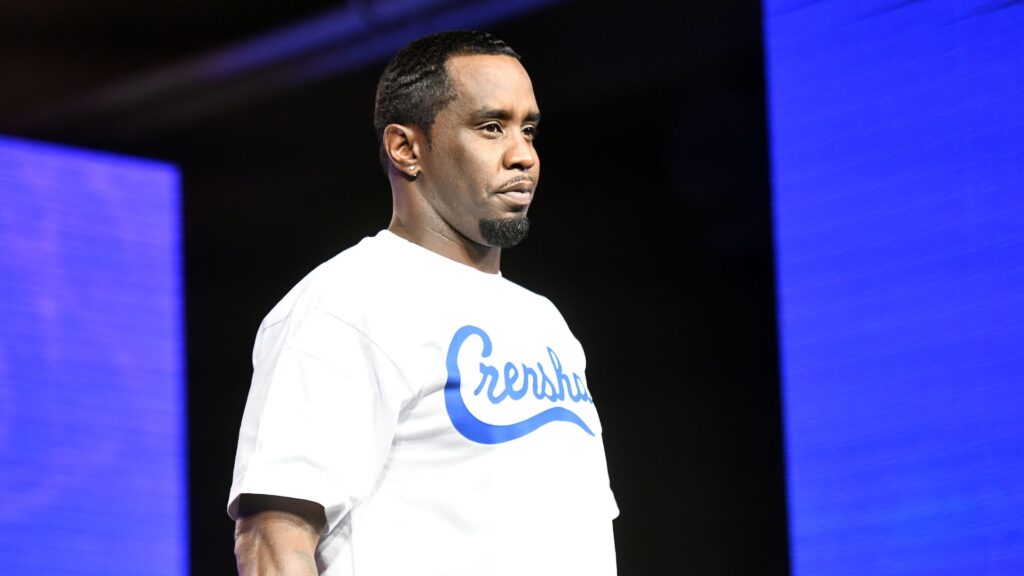
Sum 41 to Return to Their Pop-Punk Roots on Upcoming Double Album ‘Heaven and Hell’
Deryck Whibley made Sum 41’s upcoming album, Heaven and Hell, almost by accident.
It was the height of the pandemic and Whibley wasn’t really feeling inspired. And, for the first time, he was “just trying to relax,” he tells Rolling Stone. Mostly, he was focused on his other gig outside of his band: being a first-time dad.
With a firm lockdown in place, the only way for Whibley and his wife Ari to get out of the house was to put their newborn in a car seat and drive around L.A. for hours on end. For many of those rides, Whibley would curate special playlists to entertain their baby. One of those playlists was filled “with all of the punk-rock stuff I listened to when I was in high school that I hadn’t listened to in years,” he says. “[Listening to this music] kickstarted me into writing again.”
It was also around this time that Universal hit up Whibley asking if he had any vault tracks to feature on a possible 20th-anniversary reissue of the group’s iconic 2001 LP All Killer, No Filler. He didn’t. So instead he offered to write a few tracks in the same style that birthed now-classics like “Fat Lip” and “In Too Deep.”
“Once I had about four or five songs, I was like, ‘You know what? I like all these. I’m not giving these to anybody,’ ” he says. Combine the baby car rides soundtracked by bands like NOFX, Pennywise, and Good Riddance with the All Killer, No Filler anniversary, and Whibley was in a full early-2000s pop-punk mood. “I wasn’t really trying to start a record,” he admits.
What came out of this creative renaissance was Heaven and Hell. The first part of the two-part LP, known as “Heaven,” taps back into the current nostalgia surrounding pop-punk — a style Whibley started writing in before it became a thing again: “When that happened, I was like, ‘What kind of luck is that?’ ” he says. The album’s second, heavier side (“Hell”) features metallic tracks closer to the band’s most recent sound. “As I listened to almost all of it, it just kind of dawned on me,” he recalls. “‘Did I just make a double record by accident?’ “
Whibley’s lyrics on the album stem from personal experience. The Hell side works through the anxieties and confusion he’s faced in his life, especially during the pandemic. “Some of the metal stuff comes with a lot of anger for people who have stolen from me and hurt me in the past,” Whibley says, referring to past relationships and former business partners. Some of the lyrics even are directed toward a former manager who stole “lots of money” and was “mentally abusive” to Whibley and Sum 41. “He was a dark person to be around so I find that even though it was years ago, it still creeps out in my music now,” he says. “I can deal with stress and the issues that go on in life probably because I write about it and I get it all out.”
As for the Heaven side, expect to hear about the happiness that comes with becoming a dad, along with much more “positive energy.” He explains that during the pandemic, “A lot of other people were retreating to things that made them feel good in the past,” and that he did the same in bringing back Sum 41’s original pop-punk sound. “There’s some weird nostalgia that kicked in because of the pandemic,” he says. “It all made sense to me why pop-punk is coming back: it’s feel-good music. There’s something that’s happy about it. Something young and innocent and free.”
The group is also set to head out on the Blame Canada tour alongside Simple Plan this summer. And Whibley is more than ready. “Making records is like the necessary evil to get back out on the road. That’s how we’ve always looked at it,” he says with a laugh. “It’s been two years and I think we’re gonna fall right back into it. I’m just really excited.”



